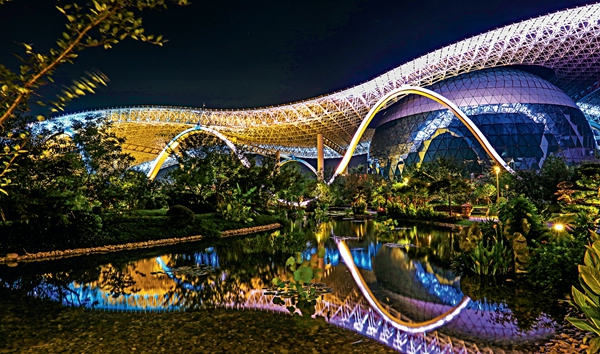Post-G20: Hangzhou Builds Stronger Ties with Southeast Asia – An Interview with Mayor of Hangzhou Zhang Hongming
China Today, February 8, 2017 Adjust font size:
CT: What opportunities and challenges will Hangzhou meet in the post-G20 era?
Zhang: In the post-G20 era, the impacts of the summit are becoming clearer; they have enabled Hangzhou to attract more information, capital, technology, and talents, and promoted the city’s business, tourism, exhibition and investment.
In the meantime we are aware that, compared with Beijing, Shanghai, and Shenzhen, we still have a lot of catching up to do: GDP has only just exceeded RMB 1 trillion, and our comprehensive power is not sufficiently strong. Our innovation capabilities and industrial structure need to improve and we still lack the competitive advantages necessary to participate in international division of labor. Hangzhou also lacks high-end talents, especially leadership types, its transportation does not meet the demands of internationalization, and public services need to improve.
CT: Internationalization is an important strategic task of Hangzhou’s 13th Five-Year Plan period. Against this background, we launched a series of interviews titled “Recall Hangzhou, Feel China.” We’ll focus on well-known personages in four Southeast Asian countries and aim to tell stories of Hangzhou through them, so presenting a panoramic view of the post-G20 Hangzhou. What advice do you have for us in this regard?

The impressive hanging garden at the Hangzhou International Expo Center.
Zhang: China has maintained uninterrupted ties with Southeast Asia, where traces of Chinese people who in earlier times made their homes in these countries are still apparent today. Places where Chinese people live, especially Chinatowns, are still the most prosperous business centers locally that display abundant Chinese cultural characteristics.
Hangzhou also has close relations with Southeast Asia. There are now 16 scheduled flights from Hangzhou to Southeast Asia, accounting for 40 percent of Hangzhou’s international flights, and tourists from Southeast Asia make up 10 percent of all foreign visitors to Hangzhou. Southeast Asian countries like Thailand, Singapore, Malaysia, Indonesia, Cambodia, and Vietnam are the main destinations for Hangzhou people traveling abroad. By the end of 2015, Southeast Asian countries had invested in Hangzhou 520 projects to the tune of US $6.04 billion.
In recent years, many Hangzhou enterprises have speeded up their pace of investment in Southeast Asia, and companies like the Huali Group and Futong Group have established industrial bases in Thailand and Cambodia.
In today’s age of globalization, Hangzhou should undertake closer, wider, and deeper exchanges with Southeast Asia, to promote mutual understanding and share development opportunities. We wish to bring the people of Hangzhou and Southeast Asia closer and to promote cultural exchanges through the “Recall Hangzhou, Feel China” interviews. We believe that China and Hangzhou’s relations with Southeast Asia will take on a new and better look through the efforts of government, media, and people from all sectors.